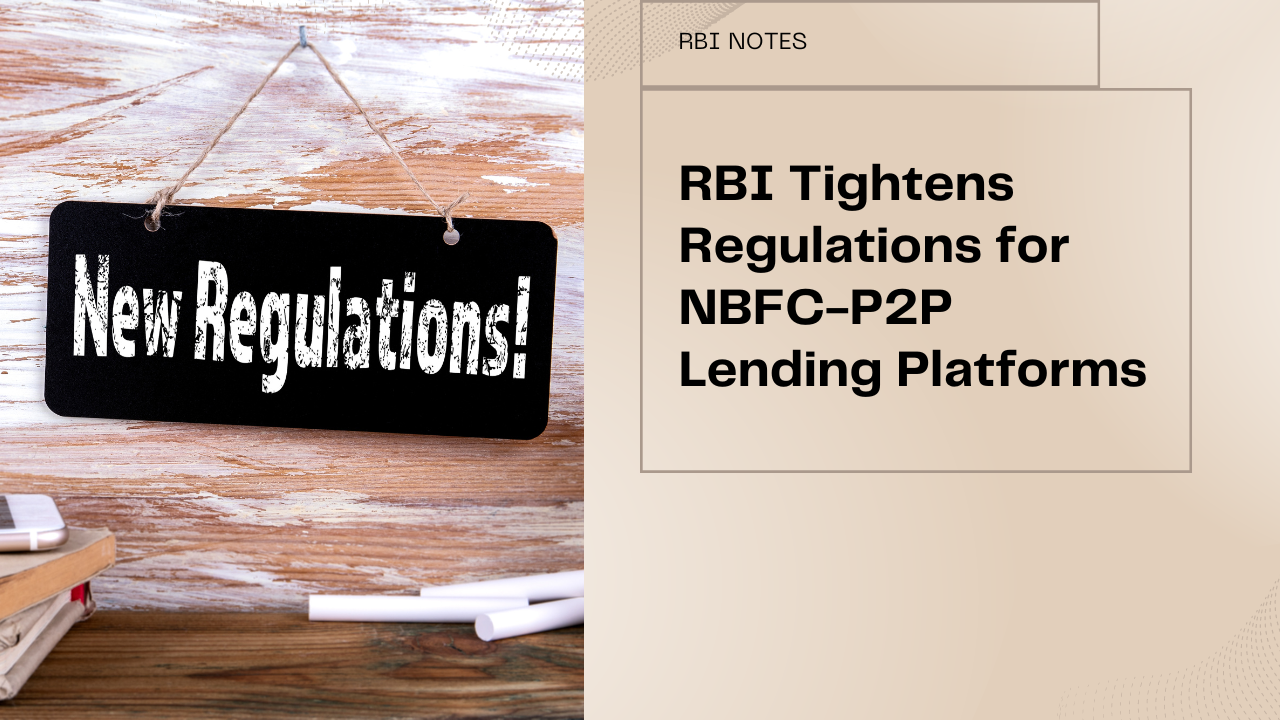The Reserve Bank of India (RBI) has introduced stricter guidelines for Non-Banking Financial Company-Peer to Peer Lending Platforms (NBFC-P2P Lending Platforms) to enhance transparency and compliance within the sector.
Key Points of the Revised Guidelines:
- Prohibition of Misleading Promotions:
The revised master direction specifies that P2P platforms must not market peer-to-peer lending as an investment product with features such as assured minimum returns linked to tenure, or liquidity options. This move aims to prevent the misrepresentation of P2P lending as a guaranteed investment product. - Restrictions on Cross-Selling:
NBFC-P2P platforms are also barred from cross-selling any insurance products that act as credit enhancement or credit guarantees. This is to ensure that the platforms do not offer products that could obscure the inherent risks of P2P lending. - Loan Disbursement Conditions:
The RBI emphasized that no loan should be disbursed unless there is a proper matching of lenders and borrowers according to a board-approved policy. This measure is intended to enforce discipline and ensure that all transactions are conducted in a transparent and compliant manner.
Background:
The RBI first issued guidelines for P2P lending platforms in 2017, recognizing them as intermediaries that provide an online marketplace for participants in peer-to-peer lending. However, the RBI observed that some platforms have engaged in practices that violate the 2017 Master Direction, prompting the need for these revised regulations.
These new guidelines are part of the RBI’s ongoing efforts to regulate the rapidly evolving fintech sector, ensuring that it operates within a framework that protects all participants.


